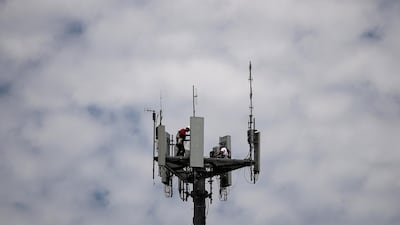The US and the Czech Republic have agreed on a strict framework to evaluate suppliers of 5G technology as countries hash out approaches to security for the next generation of internet networks.
In the joint declaration, the two countries said suppliers should be assessed for undue foreign influence, whether they have transparent ownership, are committed to intellectual property rights or are subject to legal regimes that enforce transparent corporate practices.
“Protecting communications networks from disruption or manipulation and ensuring the privacy and individual liberties of the citizens of the United States and the Czech Republic are vital to ensuring that our people are able to take advantage of the tremendous economic opportunities 5G will enable,” the declaration said.
The transition from 4G to 5G could revolutionise technology and how it is used in everyday life. It should enable the Internet of Things activity on a far wider scale, paving the way for driverless cars, smart cities, remote surgery and smart power grids. The new network is expected to account for a fifth of global connections by 2025, with “particularly strong” uptake across developed Asia, North America and Europe, according to trade body GSMA. But with the potential increase in internet connections to sensitive operations or critical infrastructure, experts warn making sure it is secure from hackers or state interference will be crucial.
The bilateral agreement comes as the US appears to be loosening restrictions on Huawei Technologies, Reuters cited sources as saying. The Department of Commerce is reportedly drafting a new rule that would allow US companies to work with China’s Huawei Technologies on setting standards for 5G networks, a year after the telecom company was placed on a list restricting work with American companies.
Chinese telecoms have long been in the crosshairs of US lawmakers, who have accused Huawei of planning to use 5G infrastructure to spy on behalf of its government. Huawei and ZTE, another Chinese telecoms company, have vehemently denied the allegations.
Countries worldwide are concerned about falling behind to China, as its dominance in developing 5G gathers pace. Last month, the UK parliament’s defence committee heard testimony for a special investigation on 5G network security.
Experts told the special investigation that an alliance of countries, such as the US, UK, South Korea and Japan, would have to pool resources in order to overtake China, but that it would take "three to five years" to create an alternative to Huawei.
MPs were told that Chinese state subsidies, estimated at $75 billion, allowed Huawei to mass-produce hardware that it could sell far cheaper than other companies.
The Czech Republic joined the debate at the end of 2018 when its cybersecurity watchdog warned of potential risks from using the two Chinese companies’ technologies, although the state has not gone as far as banning the companies, Reuters reported.
In a joint statement, the US and the Czech Republic said it welcomed efforts by the EU and Nato as well as the “Prague Proposals” that set out a common approach to 5G network security between the EU, Nato and allied countries.
These proposals, adopted at a conference hosted by the Czech government in May 2019, emphasise the need to develop and deploy 5G networks based on free and fair competition, transparency and the rule of law.


